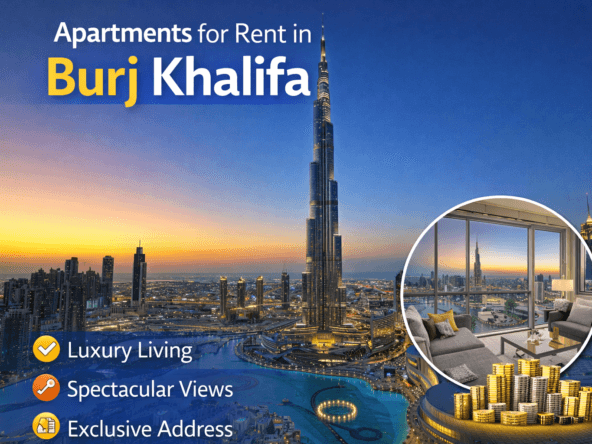Introduction
Dubai is one of the world’s most dynamic real estate hubs, attracting investors, businesses, and entrepreneurs from across the globe. When it comes to properties in Dubai, the market is vast, offering everything from office towers and retail spaces to warehouses and industrial zones. The emirate’s tax benefits, business-friendly regulations, and modern infrastructure make it a top choice for companies seeking a base in the Middle East. This guide explores every detail you need to know about commercial properties in Dubai — key features, market trends, prices, and practical tips for renting or buying.
Thank you for reading this post, don't forget to subscribe!1. Why Invest in Commercial Properties in Dubai?
Dubai’s economy is built on innovation, trade, and global connectivity. Commercial properties in Dubai offer high returns on investment due to growing demand from multinational corporations, start-ups, and regional businesses. With free zones, tax exemptions, and investor-friendly regulations, the city provides unmatched opportunities for business growth.
2. Key Features of Commercial Properties in Dubai
- Prime Locations: From Downtown Dubai to Dubai Marina and Business Bay.
- World-Class Infrastructure: Smart offices, luxury retail outlets, and logistics hubs.
- Variety of Options: Offices, warehouses, shops, co-working spaces.
- Flexibility: Long-term and short-term leasing options.
- High ROI Potential: Growing demand across multiple industries.
3. Types of Commercial Properties in Dubai
3.1 Office Spaces
From premium Grade A towers in Downtown Dubai to affordable shared offices in Business Bay, the office market is designed to cater to businesses of all sizes.
3.2 Retail Shops
Shops in malls like Dubai Mall, Mall of the Emirates, and community centers provide unmatched exposure to local and international customers.
3.3 Warehouses
Industrial zones such as Jebel Ali and Al Quoz are prime locations for warehouses, offering logistics connectivity for import/export businesses.
3.4 Co-Working Spaces
Popular among freelancers and start-ups, co-working spaces in Dubai come fully furnished with flexible leasing terms.
4. Prime Locations for Commercial Properties in Dubai
4.1 Downtown Dubai

Downtown Dubai is one of the most prestigious addresses for commercial properties in Dubai, offering premium-grade office towers surrounded by luxury hotels and retail spaces. Being home to Burj Khalifa and Dubai Mall, it attracts multinational companies seeking prestige and visibility. Its central location ensures excellent connectivity and high rental demand.
4.2 Business Bay

Business Bay is considered the heart of Dubai’s central business district, making it a popular choice for small to medium-sized companies. It offers a wide range of office spaces, from affordable shared offices to modern towers with premium amenities. Its proximity to Downtown and Sheikh Zayed Road makes it highly accessible for clients and employees alike.
4.3 Dubai Marina

Dubai Marina is known for its waterfront views and vibrant lifestyle, making it attractive for businesses targeting high-end clients and retail shoppers. Commercial spaces here often cater to luxury brands, restaurants, and boutique offices. With its blend of residential and business communities, the Marina provides both prestige and customer footfall.
4.4 Jebel Ali Free Zone

Jebel Ali Free Zone (JAFZA) is one of the largest and most important logistics and industrial hubs in the region. It is ideal for warehouses, factories, and distribution centers due to its proximity to Jebel Ali Port and Al Maktoum International Airport. Businesses in JAFZA also benefit from tax exemptions and 100% foreign ownership, making it a strategic choice for global trade.
5. Rental Prices for Commercial Properties in Dubai
Rental costs vary by location, size, and property type. Office rents in prime areas like DIFC can reach AED 300–400 per sq. ft annually, while warehouses in Jebel Ali start around AED 35–60 per sq. ft annually. Retail shops in malls are premium priced, often leased per sq. m with higher service charges.
6. Buying vs. Renting Commercial Properties in Dubai
Purchasing offers long-term stability and capital appreciation, while renting gives flexibility with less upfront investment. Many businesses start by renting before committing to ownership.
7. Regulations for Commercial Properties in Dubai
Foreign investors can own properties in designated freehold areas. Businesses in free zones benefit from 100% ownership, while onshore companies may require a local partner.
8. The Role of Free Zones in Dubai Commercial Properties
Free zones like Dubai Internet City, DIFC, and JAFZA provide tax exemptions, foreign ownership rights, and streamlined business licensing.
9. Facilities and Amenities in Commercial Properties
- High-speed internet and IT infrastructure.
- Dedicated parking spaces.
- 24/7 security and access control.
- Meeting rooms and conference halls.
- Retail and dining options within the complex.
10. Legal Process for Leasing and Buying Properties in Dubai
Lease agreements are registered through Ejari, ensuring tenant rights. Buyers must complete title deed registration through the Dubai Land Department (DLD).
11. Payment Terms for Commercial Properties
Typically 4 cheques annually for rent. Buyers pay 25%–50% upfront with mortgage options available for commercial property.
12. Market Trends in Dubai’s Commercial Real Estate
- Increasing demand for flexible offices.
- Growth in e-commerce fueling warehouse rentals.
- Rise of mixed-use developments.
- Shift toward smart, sustainable office buildings.
13. Technology in Commercial Properties in Dubai
Smart lighting, energy-efficient HVAC systems, and IoT-enabled offices are standard features in Grade A developments.
14. Comparing Properties in Dubai with Other Global Cities
Commercial rents in Dubai are more affordable than London, New York, or Singapore, yet provide higher returns due to tax advantages.
15. Financing Options for Commercial Properties
Banks and Islamic financing institutions offer commercial property loans with competitive interest rates and flexible repayment plans.
16. Sustainability in Commercial Real Estate
Dubai is moving toward green-certified buildings with LEED and Estidama standards, attracting eco-conscious businesses.
17. How Properties in Dubai Support Start-Ups
Co-working hubs and incubator-friendly zones provide affordable entry for entrepreneurs, reducing overhead costs.
18. Risks in Investing in Properties in Dubai
Market fluctuations, regulatory changes, and oversupply can impact rental yields. Investors must research thoroughly before committing.
19. The Future of Commercial Properties in Dubai
With Expo 2020’s legacy and Vision 2040, demand for office, retail, and logistics spaces is expected to rise consistently.
20. Best Practices for Leasing Commercial Properties
- Research locations and rents.
- Understand contract terms.
- Factor in hidden costs like service charges.
- Negotiate for flexibility.
21. Using Property Portals to Find Properties in Dubai
Reliable portals like zameeninfo.com make searching easy with updated listings, property details, and market insights.
22. Tax Benefits of Owning Commercial Properties in Dubai
One of the biggest advantages of investing in properties in Dubai is the absence of property tax, capital gains tax, and annual rental income tax. This makes commercial investments highly profitable compared to global markets, where tax burdens significantly reduce net returns.
23. Role of Dubai Land Department in Property Regulation
The Dubai Land Department (DLD) oversees all property-related transactions, ensuring transparency and legal compliance. It regulates ownership rights, tenancy laws, and registration processes, giving both landlords and tenants security in their commercial agreements.
24. Popular Developers Offering Commercial Properties
Leading developers like Emaar, DAMAC, and Dubai Properties deliver high-quality commercial towers, retail complexes, and business hubs. Their projects are known for modern design, prime locations, and strong demand, making them attractive to investors and tenants alike.
25. How to Evaluate ROI in Dubai Real Estate
To calculate ROI on commercial properties in Dubai, investors must compare rental yields, maintenance costs, and market demand. Prime offices usually generate steady annual returns, while retail and warehouses may offer higher yields in fast-growing areas.
26. Comparing Retail Spaces in Malls vs. Street Shops
Mall retail units offer high visibility and strong footfall but come with premium rents and service charges. Street-level shops are more affordable and flexible, catering to neighborhood customers, making both options appealing depending on the business model.
27. The Demand for Industrial Properties in Dubai
Industrial spaces like warehouses and logistics hubs are in high demand due to Dubai’s role as a global trade and e-commerce hub. Areas like Jebel Ali and Al Quoz are particularly popular, thanks to connectivity with ports and airports.
28. The Impact of Tourism on Commercial Real Estate
Dubai’s thriving tourism sector boosts demand for hotels, retail shops, and restaurants, directly impacting commercial property growth. With millions of visitors annually, businesses catering to tourists enjoy premium rental locations and higher revenues.
29. Why Dubai Attracts Global Investors
Dubai offers political stability, world-class infrastructure, and zero income tax, making it one of the most attractive destinations for global investors. Its central location between Europe, Asia, and Africa further enhances its appeal for international business.
30. Leasing Flexibility for International Companies
Dubai’s commercial real estate market offers flexible leasing options, from short-term serviced offices to long-term contracts. This allows multinational companies to scale their operations without committing to heavy upfront investments.
31. Steps to Avoid Legal Issues in Property Contracts
To avoid disputes, businesses should ensure contracts are registered with Ejari, review service charge clauses, and verify property ownership with DLD records. Hiring legal advisors helps companies protect their interests before finalizing a lease or purchase.
FAQs about Commercial Properties in Dubai
Q1: Can foreigners own commercial properties in Dubai?
Yes, in designated freehold areas and free zones.
Q2: What are the average office rental prices in Dubai?
They range between AED 80–400 per sq. ft annually, depending on location.
Q3: Which areas are best for retail shops?
Dubai Mall, Business Bay, and Marina Walk are top choices.
Q4: Is warehouse space affordable in Dubai?
Yes, warehouses in Jebel Ali and Al Quoz are competitively priced.
Q5: What documents are needed to lease a property?
Trade license, passport copies, and tenancy agreement are standard.
Q6: Are service charges included in rent?
Not always; check your contract carefully.
Q7: How does Ejari registration work?
It’s a legal system that protects tenant rights by recording leases officially.
Q8: Can properties in Dubai be mortgaged?
Yes, banks offer commercial property financing under certain conditions.
Q9: Are short-term rentals allowed for commercial use?
Some co-working spaces and serviced offices allow flexible short-term contracts.
Q10: Is Dubai commercial property market stable?
Yes, supported by strong demand and government initiatives.
Conclusion
Commercial properties in Dubai are more than just real estate — they are gateways to business growth in one of the world’s most connected cities. Whether you’re renting an office, opening a retail shop, or setting up a logistics hub, Dubai offers modern infrastructure, strategic location, and investor-friendly policies. By using trusted platforms like zameeninfo.com, you can explore verified listings and secure the right property that matches your business goals. For long-term success, consider location, budget, and growth potential before finalizing your deal.







